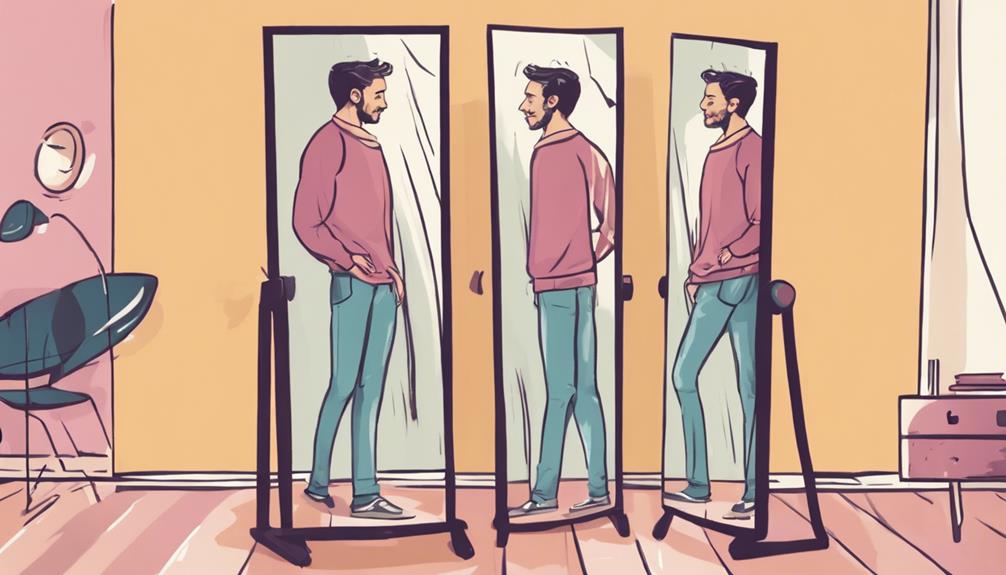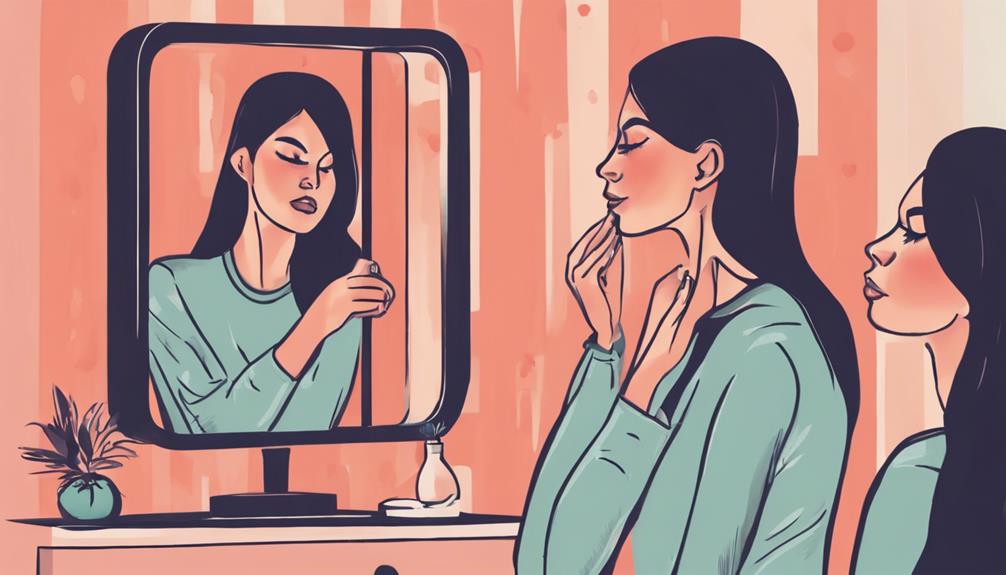Effective lifestyle hypnosis techniques for stress management include deep relaxation, positive affirmations, visualizations, self-hypnosis, overcoming negative thoughts, and daily practice routines. These methods promote emotional resilience, relaxation, and improved coping skills. By integrating hypnosis into everyday life, individuals can experience reduced cortisol levels, lower blood pressure, and better sleep quality. These practices enhance overall well-being and life satisfaction. Discover the power of hypnosis in managing stress and improving mental clarity and emotional regulation. Explore these techniques further to unlock their full potential in promoting a stress-free lifestyle.
Understanding Lifestyle Hypnosis

In the realm of stress management, a growing interest surrounds the practice of lifestyle hypnosis, a technique that involves using hypnotic suggestions to influence behavior and thought patterns related to one's lifestyle choices.
Lifestyle hypnosis offers various benefits in facilitating lifestyle changes by tapping into the subconscious mind to promote positive behaviors and habits. Through targeted hypnotic suggestions, individuals can enhance motivation, self-discipline, and self-control, leading to improved adherence to healthy lifestyle choices such as regular exercise, balanced nutrition, and stress reduction activities.
One of the key benefits of lifestyle hypnosis is its ability to address underlying psychological factors that may hinder individuals from making sustainable lifestyle changes. By rewiring negative thought patterns and beliefs, hypnosis can empower individuals to overcome barriers like procrastination, lack of confidence, or fear of failure, thus fostering a more resilient mindset conducive to positive lifestyle modifications.
Deep Relaxation With Hypnosis
Achieving a state of deep relaxation through hypnosis involves inducing a profound sense of calmness and tranquility within an individual's subconscious mind. Hypnosis benefits those seeking stress management by allowing them to access a deeply relaxed state that can counteract the negative effects of stress on the body and mind.
Through relaxation exercises guided by a trained hypnotherapist, individuals can experience a heightened state of relaxation that goes beyond what is typically achieved through traditional relaxation techniques.
One of the key advantages of using hypnosis for deep relaxation is its ability to target the subconscious mind directly, where many stressors and triggers are rooted. By accessing this part of the mind, hypnosis can help individuals reframe negative thought patterns and promote a more relaxed mental state.
Additionally, hypnosis benefits individuals by teaching them how to evoke relaxation responses more efficiently, empowering them to manage stress in their daily lives effectively. By incorporating relaxation exercises into hypnosis sessions, individuals can cultivate a sense of deep relaxation that supports overall well-being and stress management.
Positive Affirmations for Stress Relief

How can positive affirmations be utilized effectively for stress relief purposes?
Positive affirmations are powerful tools that can help reframe negative thoughts and promote a sense of calmness and well-being. When used in conjunction with breathing exercises, positive affirmations can enhance their effectiveness in managing stress. By combining affirmations with intentional deep breathing, individuals can engage the mind-body connection, calming both the mental and physical aspects of stress.
The mind-body connection plays a crucial role in stress management. Positive affirmations work to shift thought patterns towards more optimistic and uplifting perspectives, which can reduce the impact of stress on the body. When practiced regularly, positive affirmations can rewire the brain to focus on positivity rather than negativity, leading to a more balanced and resilient mindset.
Incorporating breathing exercises while reciting positive affirmations can deepen the relaxation response, further reducing stress levels. By synchronizing the breath with affirmations, individuals can create a harmonious connection between their thoughts and physical sensations, promoting a sense of inner peace and well-being.
Visualizations for Calming the Mind
Utilizing visualizations can be an effective technique for calming the mind and reducing stress levels. Visualization involves creating mental images that promote relaxation and peace. When combined with meditation techniques, visualizations can deepen the sense of calm and tranquility.
During visualization, individuals can imagine themselves in serene settings, such as a beach or a forest, allowing the mind to escape from stressors and worries.
Breathing exercises are often incorporated into visualization practices to enhance relaxation. Deep breathing techniques help slow down the heart rate, lower blood pressure, and signal the body to relax. By focusing on deep, intentional breaths while visualizing calming scenes, individuals can achieve a deeper state of relaxation and reduce stress levels effectively.
Incorporating visualization with meditation techniques and breathing exercises into a daily routine can significantly aid in calming the mind and managing stress. This holistic approach engages both the mind and body, promoting overall well-being and mental clarity.
Self-Hypnosis Techniques for Relaxation

Self-hypnosis techniques can be effective tools for inducing relaxation and reducing stress levels in individuals. Guided meditation is a widely used self-hypnosis technique that helps individuals achieve a state of deep relaxation by following a set of verbal instructions or visualizations. This practice can calm the mind, reduce anxiety, and promote overall well-being.
Another common self-hypnosis technique for relaxation involves incorporating breathing exercises. By focusing on slow, deep breaths, individuals can activate the body's natural relaxation response, leading to a decrease in stress levels. Deep breathing techniques can help regulate the autonomic nervous system, lower heart rate, and promote a sense of calmness.
Combining guided meditation with breathing exercises during self-hypnosis sessions can enhance the relaxation response and amplify the benefits of the practice. By incorporating these techniques into a daily routine, individuals can effectively manage stress, improve mental clarity, and enhance their overall quality of life.
Overcoming Negative Thought Patterns
To address the challenge of overcoming negative thought patterns, individuals can explore cognitive restructuring techniques aimed at reshaping unhelpful beliefs and promoting a more positive mindset. Cognitive restructuring involves identifying negative thought patterns, challenging their validity, and replacing them with more balanced and realistic thoughts. This technique can help individuals break free from destructive thinking patterns that contribute to stress and anxiety.
Mindfulness meditation is another powerful tool for combating negative thought patterns. By practicing mindfulness, individuals learn to observe their thoughts without judgment, allowing them to detach from negative emotions and cultivate a sense of inner peace and clarity. This practice can help individuals become more aware of their thought patterns and choose how to respond to them.
In addition to cognitive restructuring and mindfulness meditation, incorporating positive self-talk and gratitude journaling into daily routines can further support the process of overcoming negative thought patterns. Positive self-talk involves replacing self-critical inner dialogue with affirming and encouraging statements, while gratitude journaling helps individuals focus on the positive aspects of their lives, fostering a sense of appreciation and contentment.
Daily Hypnosis Practice for Stress Management

Implementing a consistent daily hypnosis practice can be a beneficial strategy for effectively managing stress and promoting relaxation. The benefits of incorporating hypnosis into your daily routine for stress management are numerous.
Hypnosis can help individuals achieve a state of deep relaxation, allowing them to release tension and stress from both the body and mind. By regularly practicing self-hypnosis or listening to guided hypnosis recordings, individuals can learn to control their responses to stressors and develop a more positive outlook on life.
In addition to promoting relaxation, hypnosis can also help individuals reframe negative thought patterns and replace them with more positive and empowering beliefs. This can contribute to a reduction in overall stress levels and an improved sense of well-being.
Frequently Asked Questions
Can Lifestyle Hypnosis Techniques Help With Physical Pain Relief?
Lifestyle hypnosis techniques can be effective in pain management by tapping into the mind-body connection. This alternative therapy promotes holistic healing by addressing underlying stressors that contribute to physical pain, offering a complementary approach to conventional treatments.
Is Hypnosis Suitable for Children and Teenagers?
Child therapy utilizing hypnosis can be effective in addressing various issues such as anxiety, phobias, and behavioral problems. For teenagers experiencing stress, hypnosis can offer alternative methods for managing emotions, improving focus, and enhancing overall well-being.
How Long Does It Take to See Results With Hypnosis?
The effectiveness of hypnosis in achieving desired results varies among individuals. Managing expectations is crucial as the timeline for seeing results with hypnosis can differ. Factors such as the goal, individual responsiveness, and frequency of sessions influence the speed of progress.
Can Hypnosis Be Used to Improve Sleep Quality?
Hypnosis can be utilized to enhance sleep quality through promoting relaxation and addressing insomnia. By incorporating sleep hygiene practices and mindfulness techniques, hypnosis can help individuals achieve better rest, improving overall well-being and mental health.
Are There Any Potential Side Effects of Using Hypnosis for Stress Management?
When considering hypnosis safety for stress management, it's essential to acknowledge potential risks involved. While hypnosis is generally safe when conducted by trained professionals, side effects can include false memories, emotional distress, or exacerbation of mental health conditions.
Conclusion
In conclusion, lifestyle hypnosis techniques offer effective tools for managing stress. They promote deep relaxation, positive affirmations, visualizations, self-hypnosis, overcoming negative thought patterns, and daily practice.
By incorporating these techniques into daily routines, individuals can experience improved stress management and overall well-being. It is important to approach hypnosis with an open mind and consistency to reap the full benefits of these powerful stress-relief practices.























